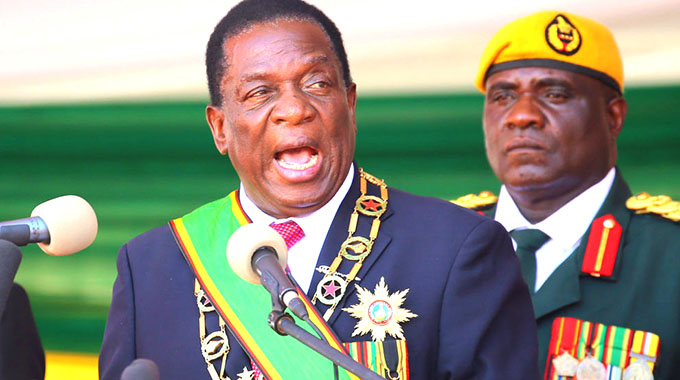EDITORIAL COMMENT : More women needed in parastatal boards

Zimbabwe prides itself among leading countries in the region committed to gender equality. That affirmation is attested by a litany of policies and laws that create and promote equal opportunities for women and men in social, political and economic landscapes.
Existing legal statutes ably supported by our Constitution and political will by the Second Republic have seen the gradual progression of women, where they are now at par with their male colleagues in various spaces particularly in Government.
To date, the country boasts several women who now hold powerful positions, evidence of the Government’s commitment to level the playing field for competent men and women, who can measure up to the task at hand.
Names that easily come to mind include the likes of Zimbabwe Electoral Commission chairperson, Justice Priscilla Chigumba, Judges Lavender Makoni, Elizabeth Gwaunza and Rita Makarau and the Zimbabwe Revenue Authority Commissioner-General, Ms Faith Mazani.
The appointment of these individuals to their current portfolios was meritocratic. Such strides in pursuit of gender equality cannot be wished away nor be dismissed as tokenism because the elevations are part of a battery of Government’s measures to include women in governance as enshrined in the Constitution.
Suffice it to say, the gender equality matrix and the call by President Mnangagwa for equal opportunities call seem to have been lost on parastatals who have been affront towards women empowerment judging by the low representation of women sitting on their boards and holding senior management positions.
The Zimbabwe Gender Commission has since expressed concern over the low representation of women in boards of parastatals and senior management positions after a study it carried out revealed a serious gender imbalance in the number of women being appointed in both these institutions and in senior management levels.
It is sad to note that despite the concerns raised by the Commission on the need for line ministries to take corrective measures, nothing has been done. It is not clear why parastatals are not keen on adopting a national stance by giving women equal opportunities with their counterparts, considering that there are an array of competent individuals to choose from.
Like any other institution, parastatals have a mandate to carry forward the nation’s vision by ensuring gender balance in all its structures as clearly articulated in the Constitution.
With boards being important structures of an organisation, where strategic decisions are made, governance applied and risk overseen, it is therefore imperative that they should be made up of competent high calibre individuals who offer a mix of skills, experience and varying backgrounds.
Given the long record of women achieving the highest qualifications and leadership positions in many walks of life, it should not be a point of conjecture on whether women should be included in boards or not.
Women have shown that they are capable and there are several advantages attached to the inclusion of women in governance, and boards are not an exception. Diverse groups of people bring a greater variety of experience and different views to the decision-making process, which in turn make better decisions than a process, where there are no divergent views.
It is clear that gender diversity on boards helps to ensure that the entire consumer base is represented, and that can never be far from the truth for a nation like ours, where 52 percent of the population is made up of women. Aspirations of such a huge percentage of the populace cannot be wished away and therefore needs to be represented.
Of course some sections of society often argue that the inclusion of women might not translate to representation of the female population in terms of aspirations.
However, that should not the basis of shrinking women’s spaces in public structures nor deriding their involvement in governance issues.
The call for application for gender parity principle should be embraced in totality by every Zimbabwean, in line with the Government’s commitment for gender equality and gender equity.
As a nation, we need a paradigm shift towards engendered leadership to ensure that we do not remain in the Stone Age era, where women’s roles are not confined to the kitchen.
We must be careful not to bequeath the same archaic narrative to future generations — a narrative that belittles the role of women in national development — but instead train them to promote inclusivity and diversity.
Parastatals should be gently reminded that the role of women in decision-making is a key condition for women’s empowerment, in addition to being a basic human right of women to participate in decisions that affect their lives.









Comments